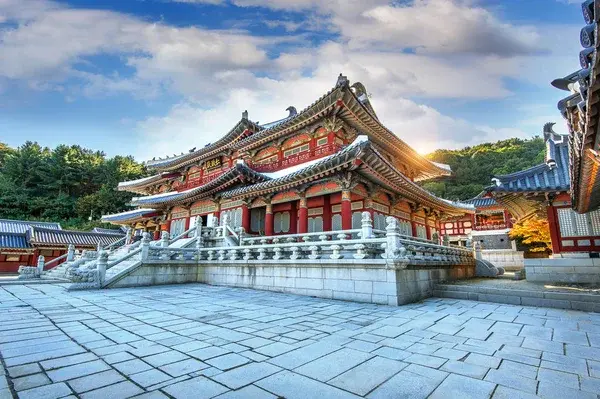The Effect of Political Stability on Economic Development
Political stability is a cornerstone for fostering economic development within nations. It encompasses a range of dimensions, including a reliable government, absence of violent conflict, and adherence to the rule of law. Understanding the relationship between political stability and economic development necessitates an examination of how governance, policy implementation, and societal conditions interact to influence economic outcomes.
Defining Political Stability
Political stability refers to the durability and integrity of a government and its institutions. A stable political environment is characterized by predictable governance where individuals have confidence in political processes, laws are upheld, and public services function effectively. Conversely, political instability may manifest through coups, civil wars, revolutions, or even the continuous threat of government breakdown. Each of these affects societal well-being and economic performance.
Difference between a politically stable and unstable country:
- Economic Growth: Politically stable countries often experience consistent economic growth due to a predictable regulatory environment, whereas unstable countries may face volatility that hinders investment.
- Social Cohesion: Stability promotes social cohesion and community trust, while instability can lead to divisions, conflict, and widespread distrust among citizens.
- Governance Quality: Politically stable nations typically exhibit effective governance structures, resulting in lower corruption levels, in contrast to unstable countries where governance may be weak or ineffective.
- Foreign Investment: Stable countries attract more foreign direct investment due to perceived safety and reliability, whereas unstable countries may struggle to secure investment due to high risks.
- Public Services: In a stable country, public services such as education and healthcare are often more accessible and effectively managed, while in unstable regions, these services may be disrupted or underfunded.
- International Relations: Politically stable countries tend to maintain positive diplomatic relations, whereas instability can result in isolation or strained relations with other nations.
- Rule of Law: The rule of law is typically stronger in stable countries, ensuring legal protections for citizens, whereas unstable countries may face arbitrary justice and lack of legal recourse.
comparison between political stability and instability:
| Aspect | Political Stability | Political Instability |
|---|---|---|
| Definition | A condition characterized by consistent governance and order. | A situation marked by frequent changes in government and civil unrest. |
| Indicators | Low crime rates, consistent policies, effective governance. | High crime rates, protests, governmental turnover. |
| Economic Impact | Fosters investment and economic growth. | Deters investment, leading to economic decline. |
| Public Trust | High levels of trust in government institutions. | Low public confidence in leadership and institutions. |
| Social Cohesion | Strong community engagement and social order. | Divisions among social groups and increased conflict. |
| Global Perception | Viewed favorably by the international community. | Often perceived as a risk for investment and tourism. |
| Examples | Countries like Switzerland and Canada. | Nations experiencing civil war or severe political crises. |
The Interrelationship Between Political Stability and Economic Development
- Attracting Investment
One of the most significant effects of political stability on economic development is its influence on investment. Investors are inherently risk-averse, seeking environments that minimize uncertainty. Political stability allows both domestic and foreign investors to plan long-term investments with confidence, knowing that their assets will be protected by law, and they can expect consistent regulatory frameworks. When political stability is compromised, investment often falters, leading to economic stagnation.
For instance, countries such as Singapore have benefitted immensely from their political stability, characterized by transparent governance and a commitment to the rule of law. This has translated into robust economic growth, whereas nations facing prolonged political turmoil often see capital flight, hindered innovation, and reduced economic output.
- Economic Growth and Productivity
Stable political environments tend to foster better governance systems, which can enhance the efficiency of economic policies and institutions. These systems promote effective public service delivery, enhance infrastructure development, and ensure that economic policies support entrepreneurship and innovation. Stability tends to correlate with sound fiscal policies, regulatory frameworks, and anti-corruption measures, which are pivotal for economic growth.
Consider the case of Rwanda, a nation that emerged from a devastating genocide in the 1990s. Through determined leadership and investment in stability and institution building, Rwanda has experienced impressive economic growth, showcasing that political stability can propel even post-conflict societies towards sustainable economic development.
- Human Capital Development
Political stability also plays an essential role in fostering human capital development. A stable government creates an environment conducive to education and health initiatives, which are vital for developing a skilled workforce. Nations that prioritize education and health are better positioned to innovate and enhance productivity.
Countries facing political unrest often divert substantial resources towards military expenditures or deal with the immediate consequences of violence, detracting from investments in education and healthcare. The resultant lack of skilled labor not only hinders immediate economic returns but also has long-term implications for growth as a nation’s human capital remains underdeveloped.
- Social Cohesion and Economic Policy Implementation
Political stability contributes to social cohesion, which is crucial for the successful implementation of economic policies. In stable environments, citizens are more likely to accept and support government policies, leading to greater collective action and cooperation in enhancing economic objectives. In contrast, political unrest can breed division and lead to a distrust of government initiatives, complicating economic reforms and hindering overall development.
Countries like those in Scandinavia, known for their stable political climates, demonstrate high levels of social trust, allowing for the successful implementation of welfare policies that promote social equity alongside economic growth. This understanding of the interaction between governance and societal dynamics illustrates the broader implications of political stability in fostering economic development.
- Macro-Economic Stability
Lastly, a stable political environment is integral to macroeconomic stability. Political uncertainty often leads to volatility in currency markets, inflation rates, and overall economic performance. In the absence of political stability, economies may experience rapid fluctuations which deter investment and complicate planning for businesses.
Nations experiencing persistent instability often have trouble managing inflation and public debt, leading to economic crises. On the other hand, politically stable countries can pursue sustainable macroeconomic policies, creating a climate where inflation is contained, currencies are stable, and economic growth can flourish.
The Risks of Overemphasizing Stability
While political stability undoubtedly has a positive correlation with economic development, it is also essential to recognize the risks of overemphasizing stability at the expense of democratic engagement and social reforms. Stability achieved through authoritarian regimes may yield short-term economic gains, but the long-term results can be detrimental when political freedoms are suppressed, leading to civil unrest or social discontent.
Therefore, a balanced approach that incorporates both political stability and democratic accountability is recommended. Policymakers must navigate this landscape carefully to ensure that political stability does not become synonymous with repression but rather serves as a framework for inclusive growth and development.
Conclusion
The relationship between political stability and economic development is complex and multifaceted. Political stability is vital for encouraging investment, fostering human capital development, ensuring effective policy implementation, and maintaining macroeconomic stability. A stable political climate provides the necessary foundation for sustainable economic growth and resilience against external shocks.
However, this relationship also underscores the need for policies that promote not only stability but also democratic governance and social equity. By ensuring that stability does not come at the cost of democratic values, nations can pursue comprehensive strategies that optimize the benefits of political stability while promoting inclusive economic development. As such, fostering environments that marry stability with freedom, justice, and opportunity remains a central challenge—and imperative—for nations striving toward sustainable economic prosperity.



